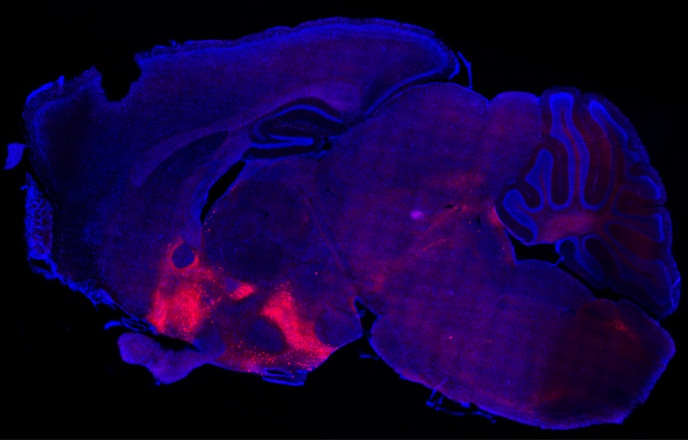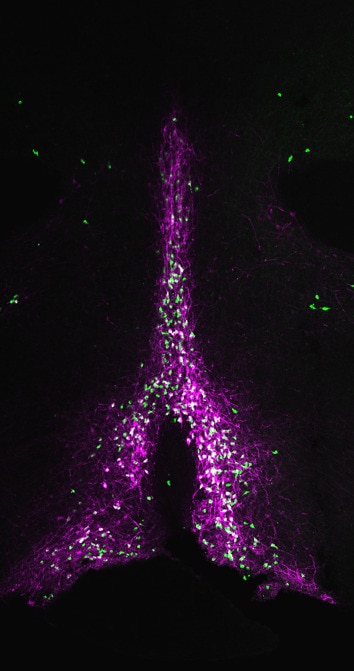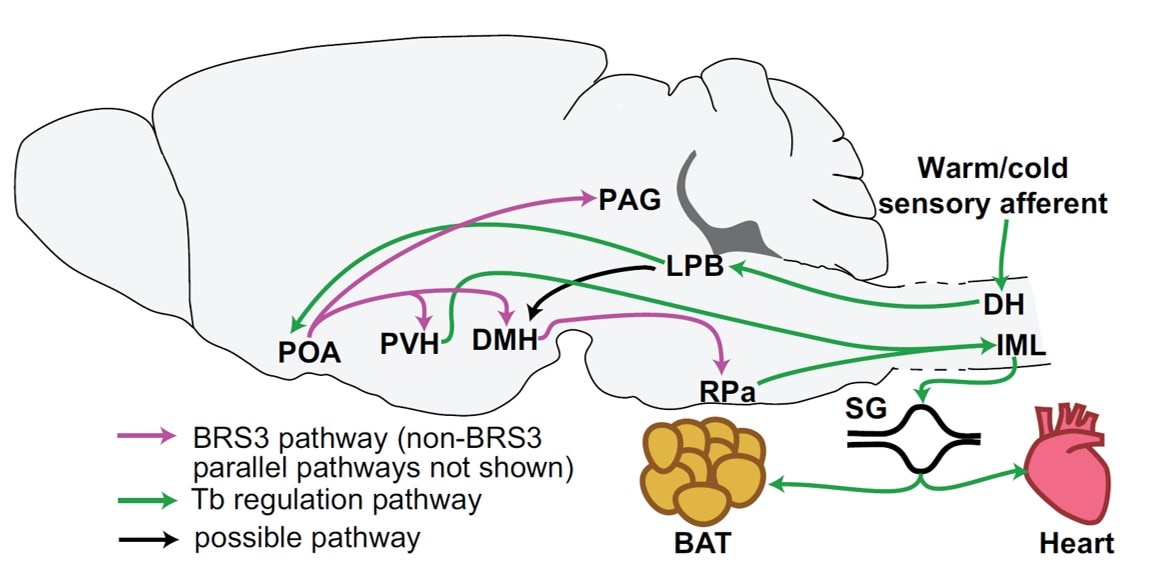Ramón A. Piñol, Ph.D.

Professional Experience
- Staff Scientist (Reitman lab), National Institutes of Health, Bethesda, MD, 2021-present
- Post-doctoral Researcher, National Institutes of Health, 2013-2021
- Ph.D., George Washington University, Washington, DC, 2013
- Doctoral Researcher, George Washington University, Washington, DC, 2007-2013
- Research Assistant, George Washington University, Washington, DC, 2006-2007
- Pre-doctoral Researcher, Harvard Medical School, Boston, MA, 2005
- Research Assistant, Academic Medical Center, Amsterdam, Netherlands, 2004
- Pre-doctoral Researcher, Netherlands Inst. for Neuroscience, Amsterdam, Netherlands, 2003
Current Research
The rising incidence of obesity and associated morbidity is an epidemic, making it a significant public health issue. This has increasingly generated more interest in the central regulation of energy metabolism and homeostasis as it relates to obesity and cardiovascular disease. Only a small fraction of the circuitry that the brain uses to control energy expenditure, food intake and the cardiovascular system have been extensively studied. The details of the function and connectivity of many of these pathways remain largely unknown.
Bombesin-like receptor 3 (BRS3), playing an important role in energy homeostasis, is a G-protein coupled receptor that is phylogenetically conserved and primarily expressed in restricted sites in the brain. One of our current research objectives is to deconvolute the circuitry that BRS3 neurons engage to regulate energy balance and body temperature. We have found that BRS3 neurons in the preoptic area and the dorsomedial hypothalamus are able to increase energy expenditure and brown adipose tissue activation, therby increasing body temperature.
Our goal is that this research leads to new important and clinically relevant insights to how diseases develop and can be targeted to ultimately mitigate highly prevalent diseases, including obesity and cardiovascular disease.
Select Publications
- Preoptic BRS3 neurons increase body temperature and heart rate via multiple pathways.
- Piñol RA, Mogul AS, Hadley CK, Saha A, Li C, Škop V, Province HS, Xiao C, Gavrilova O, Krashes MJ, Reitman ML.
- Cell Metab (2021 Jul 6) 33:1389-1403.e6. Abstract/Full Text
- Brs3 neurons in the mouse dorsomedial hypothalamus regulate body temperature, energy expenditure, and heart rate, but not food intake.
- Piñol RA, Zahler SH, Li C, Saha A, Tan BK, Škop V, Gavrilova O, Xiao C, Krashes MJ, Reitman ML.
- Nat Neurosci (2018 Nov) 21:1530-1540. Abstract/Full Text
Research in Plain Language
The brain controls the body, thereby creating a state of motivational need for us to maintain a physiological equilibrium (homeostasis) in the body. Organisms evolved to having nervous systems to be able to adapt faster and more efficiently to their interior and exterior milieu. This adaptation includes regulation of the organs that maintain homeostasis under varying conditions. The miracle of homeostasis occasionally goes amiss, resulting in inadequate regulation of our organs and possibly leading to disease. Therefore, we are working to discover and find out what the function is of the nerve cells of the brain that regulate 1) the use of energy in the body, 2) fat tissue, 3) heart rate and blood pressure, 4) food intake and 5) body temperature. Our goal is to ultimately contribute towards comprehending the conditions under which diseases can arise and for developing targets to mitigate highly prevalent diseases, including obesity and cardiovascular disease.
Research Images




